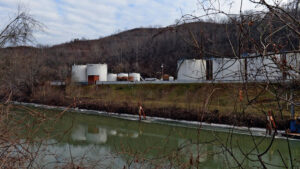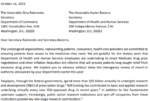MEDIA ADVISORY
February 25, 2021
Contacts:
Angie Rosser, arosser@wvrivers.org, 304-437-1274
Gary Zuckett, garyz@wvcag.org, 304-437-3701
Linda Frame, lframewv@gmail.com, 304-419-1454
| What: | People’s Public Hearing: HB 2598
After several public interest groups were denied their requests for the usual public hearing procedure in the House regarding House Bill 2598, they’ve banded together to hold their own Public Hearing so the voice of citizens can be heard on critical issues that affect them, their families and communities. |
| When: | Friday, February 26, at 8 a.m. |
| Where: | Click here to register via Zoom |
| Who: | Members of the media, legislators and the general public are invited to join a virtual People’s Public Hearing hosted by public interest groups including West Virginia Rivers Coalition, West Virginia Environmental Council, West Virginia Citizen Action Group, West Virginia Sierra Club, and the Ohio Valley Environmental Coalition. The event will be moderated by Sam Hickman, Executive Director of WV Chapter National Association of Social Workers. |
| Why: | House Bill 2598 would roll back protections adopted in response to the 2014 Freedom Industries spill that contaminated the drinking water supply for nearly 300,000 people in the Kanawha Valley and surrounding communities.
Identical to last session’s House Bill 4079, the bill would remove tanks containing 210 barrels or less of “brine water or other fluids produced in connection with hydrocarbon production activities” in zones of critical concern from regulation. It would require an inventory and registration of such tanks and defines zones of critical concern as corridors along streams within a watershed that need close scrutiny because of a nearby surface-water intake point and its susceptibility to potential contaminants. |
# # #







